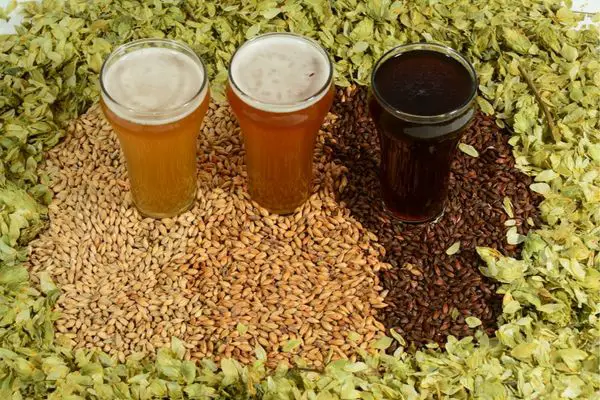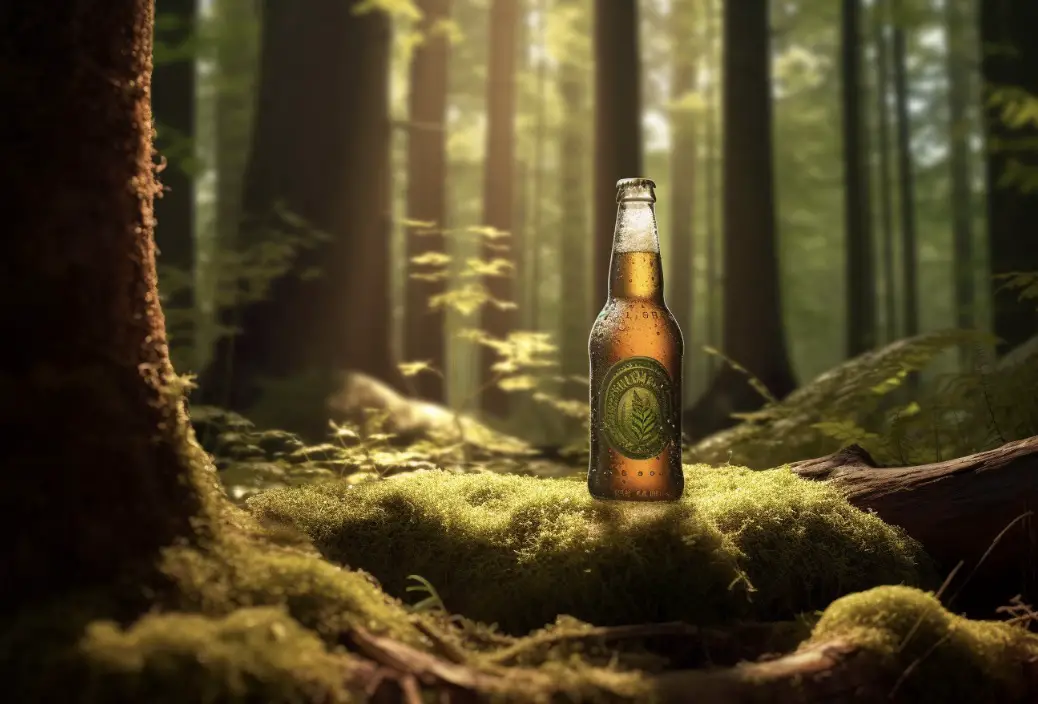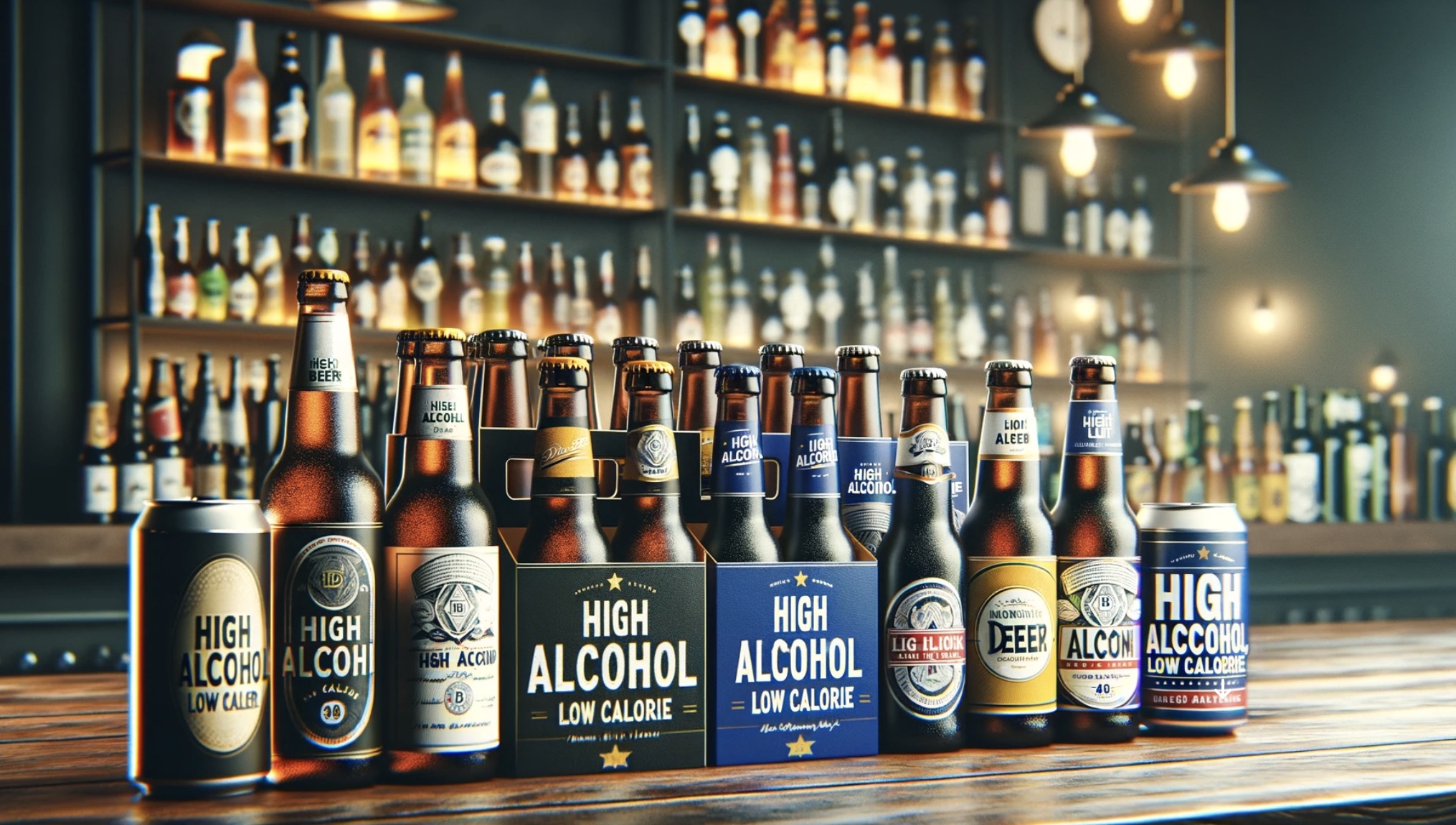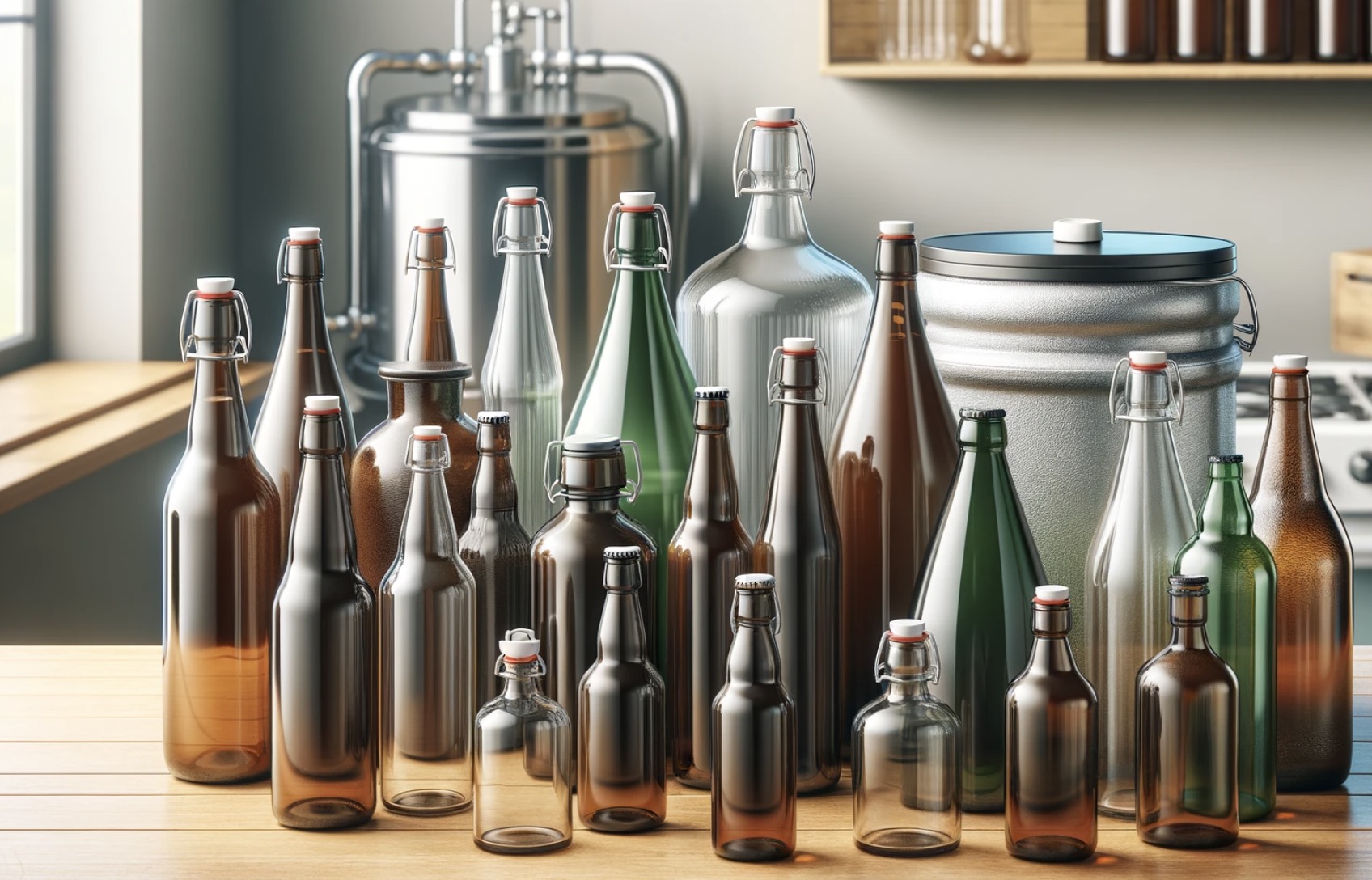What are some beers without additives or preservatives? In today’s world, where many people are becoming more health-conscious and looking for pure, natural products, it is no wonder that the demand for beers without additives or preservatives has increased.
As a brewer, I have had the pleasure of trying various beers that are free from these substances, and I am excited to share my knowledge with you.
In this blog post, we will explore some of the best beers without additives or preservatives, delve into the brewing process, and discuss the benefits of choosing these types of beers. So, let’s get started!
The Brewing Process
Ingredients Matter
When it comes to brewing beer without additives or preservatives, the ingredients play a crucial role. The main ingredients in beer are water, malted barley, hops, and yeast.

These ingredients, when combined, undergo a process called fermentation, which results in the production of alcohol and carbon dioxide.
By using high-quality, natural ingredients and following traditional brewing methods, brewers can create beers that don’t require any artificial substances.
What beer has the healthiest ingredients?
When it comes to determining the healthiest beer, it’s important to note that beer is generally not considered a health food.
However, some beers may contain ingredients that offer certain health benefits. Here are a few examples:
1. Light Beers: Light beers typically have lower alcohol content and fewer calories than regular beers. They are often brewed with a lower amount of malt and may have reduced carbohydrates. While they may not offer specific health benefits, they can be a better choice for those watching their calorie intake or looking for a lighter option.
2. Organic Beers: Organic beers are brewed using ingredients that have been grown without the use of synthetic pesticides, fertilizers, or genetically modified organisms (GMOs). Although the health benefits of consuming organic beer are not scientifically proven, some people prefer them due to the reduced exposure to potentially harmful chemicals.
3. Beers with Natural Ingredients: Some breweries focus on using natural ingredients, such as whole grains, hops, and yeast, without additives or artificial flavors. These beers may appeal to individuals seeking a more natural product.
4. Fruit-infused Beers: Certain beers are brewed with fruits like citrus, berries, or tropical fruits. While the fruit flavors can enhance the taste, they may also provide some additional vitamins and antioxidants found naturally in the fruit.
It’s important to remember that moderation is key when consuming beer or any alcoholic beverage. Excessive alcohol consumption can have detrimental effects on health.
If you’re looking for specific health benefits, it’s generally better to focus on a balanced diet and regular exercise rather than relying on beer as a source of nutrients.
Traditional Brewing Methods
Traditional brewing methods are essential in creating beers without additives or preservatives. These methods typically involve a more extended fermentation process, allowing the beer to develop its flavors and character naturally.
This extended process also helps to stabilize the beer, reducing the need for preservatives. Some traditional brewing methods include using open fermentation, utilizing wooden barrels for aging, and allowing the beer to undergo a secondary fermentation in the bottle.
Beers Without Additives or Preservatives
Craft Beers
Craft beers are often a go-to choice for those seeking beers without additives or preservatives. Many craft breweries pride themselves on using only high-quality, natural ingredients and traditional brewing methods to create their beers. As a result, you can find a wide variety of additive-free and preservative-free craft beers on the market, ranging from hoppy IPAs to rich stouts.
Organic Beers
Another excellent option for those looking for beers without additives or preservatives is organic beers. To be labeled as organic, a beer must be made using only organic ingredients and must not contain any synthetic additives or preservatives.

This means that organic beers are typically free from chemicals, pesticides, and genetically modified organisms (GMOs).
German Purity Law Beers
The German Purity Law, also known as the Reinheitsgebot, is a regulation that dates back to 1516. According to this law, only water, barley, hops, and yeast can be used in the production of beer. This means that beers brewed in accordance with the German Purity Law are free from additives and preservatives. Some popular examples of such beers include Weihenstephaner Hefeweissbier, Ayinger Celebrator, and Paulaner Hefe-Weizen.
Benefits of Choosing Beers Without Additives or Preservatives
Improved Taste and Flavor
One of the most significant benefits of choosing beers without additives or preservatives is the improved taste and flavor. Many beer enthusiasts believe that these beers have a more authentic, natural taste, as they are free from artificial substances that can sometimes alter a beer’s flavor profile.
Health Benefits
There are potential health benefits associated with consuming beers without additives or preservatives. Some studies have suggested that artificial additives and preservatives can cause short-term side effects such as headaches and digestive issues, as well as long-term health problems like cancer and heart disease. By choosing beers without these substances, you may be reducing your risk of experiencing these adverse effects.
Environmental Benefits
Choosing beers without additives or preservatives can also have environmental benefits. This is because the production of organic ingredients and the use of traditional brewing methods typically have a lower environmental impact than conventional methods. By opting for these types of beers, you are supporting sustainable practices and helping to protect the planet.
Conclusion
In conclusion, there are many great beers available that are free from additives and preservatives. By opting for craft beers, organic beers, or those brewed following the German Purity Law, you can enjoy a more authentic taste while also reaping the potential health and environmental benefits. So, the next time you’re in search of a delicious, additive-free beer, consider giving one of these options a try. And to wrap things up, here are ten quick facts about beers without additives or preservatives:
1. Ingredients matter in the production of additive-free and preservative-free beers.
2. Traditional brewing methods are essential in creating these beers.
3. Craft beers often do not contain additives or preservatives.
4. Organic beers are made using only organic ingredients and are free from synthetic substances.
5. The German Purity Law mandates that only water, barley, hops, and yeast can be used in beer production.
6. Beers without additives or preservatives typically have an improved taste and flavor.
7. There are potential health benefits associated with consuming these beers.
8. Choosing these beers can have environmental benefits.
9. Some popular examples of additive-free and preservative-free beers include Weihenstephaner Hefeweissbier, Ayinger Celebrator, and Paulaner Hefe-Weizen.
10. By choosing beers without additives or preservatives, you are supporting sustainable practices and protecting the planet.
FAQs
Which beer is good quality?
Determining the quality of beer is subjective and can vary based on personal preferences. However, several factors contribute to the overall quality of a beer. These include the ingredients used, brewing techniques, and the expertise of the brewer.
High-quality beers often use premium ingredients, such as malted barley, hops, yeast, and water, sourced from reputable suppliers. The balance and complexity of flavors, aromas, and textures are crucial indicators of quality. Additionally, the brewing process, including fermentation and aging, can greatly influence the final product.
Many well-established breweries with a history of producing consistently excellent beers are often considered to offer good quality. However, numerous craft breweries worldwide are also renowned for their dedication to producing exceptional beers, experimenting with unique flavors, and pushing the boundaries of traditional brewing styles.
Ultimately, the definition of a good quality beer is subjective and can differ based on personal taste preferences. It is advisable to explore various beer styles, breweries, and seek recommendations from trusted sources to determine what suits your palate and discern your own definition of good quality.
What are the healthiest beers?
The healthiest beers are typically those that are brewed with natural ingredients and have a balanced nutritional profile. Here are some factors to consider when looking for healthier beer options:
1. Light Beers: Light beers generally have fewer calories and lower alcohol content than their regular counterparts. They are often brewed with fewer carbohydrates and less malt, resulting in a lighter body and reduced calorie content.
2. Low-Calorie Beers: Many breweries produce low-calorie beers that are specifically formulated to have fewer calories than traditional beers. These beers often have around 100 calories or less per serving, making them a good choice for those watching their calorie intake.
3. Craft Beers with Natural Ingredients: Craft beers brewed with natural ingredients, such as barley, hops, water, and yeast, can be a healthier choice compared to beers that contain artificial additives, flavors, or sweeteners. Look for beers that prioritize using high-quality, natural ingredients.
4. Organic Beers: Organic beers are made from ingredients that are grown without the use of synthetic pesticides, herbicides, or genetically modified organisms (GMOs). Choosing organic beers can help avoid potential exposure to harmful chemicals.
5. Beers with Lower Alcohol Content: Moderation is key when it comes to alcohol consumption, so opting for beers with lower alcohol content can be a healthier choice. Beers with higher alcohol content tend to have more calories and can contribute to excessive alcohol consumption.
It’s important to note that while these beers may be considered healthier options, moderation is still crucial. Excessive alcohol consumption can have negative effects on health, so it’s always recommended to drink responsibly.
What is quality beer?
Quality beer can be defined by several key factors:
1. Ingredients: Quality beer starts with high-quality ingredients. This includes malted grains (such as barley), hops, water, and yeast. The selection of premium ingredients and their proper handling greatly impacts the flavor, aroma, and overall quality of the beer.
2. Brewing Process: The brewing process plays a crucial role in producing quality beer. Factors such as temperature control during mashing, boiling, fermentation, and conditioning significantly influence the final product. Attention to detail and adherence to best practices in brewing techniques are essential for consistency and quality.
3. Flavor and Aroma: A quality beer should have a well-balanced flavor profile, with no off-flavors or unpleasant aromas. The flavors can vary depending on the beer style, but they should be harmonious, without any dominating or overpowering elements. The aroma should be enticing and characteristic of the beer’s style, showcasing the hops, malt, and yeast used.
4. Appearance: Visual appeal is an important aspect of quality beer. It should have a clear and appropriate color for its style, whether it’s a pale lager or a dark stout. The beer should also exhibit a good head formation and retention, with lacing on the glass as it is consumed.
5. Mouthfeel: The texture and mouthfeel of a quality beer should be appropriate for its style. This includes factors such as carbonation level, body, and smoothness. A well-crafted beer will have a pleasing mouthfeel that complements its flavor and style.
6. Consistency: Quality beer should be consistent from batch to batch. This means that each time you enjoy a particular beer, it should taste and smell the same, providing a reliable and enjoyable experience. Consistency is achieved through precise recipe formulation, meticulous brewing techniques, and quality control measures.
7. Quality Control: A reputable brewery will have quality control measures in place to ensure the beer meets specific standards. This includes regular testing for potential contaminants, such as bacteria or wild yeast, as well as monitoring the beer’s alcohol content, pH levels, and other critical parameters.
Ultimately, quality beer is a combination of craftsmanship, attention to detail, and using the best ingredients available. It should be a well-balanced, flavorful, and consistent beverage that brings enjoyment to the consumer.
What beers are clean?
The term “clean” in the context of beer refers to a specific characteristic of the beer’s flavor profile. Clean beers are those that have a well-balanced, crisp, and refreshing taste without any off-flavors or faults. While the perception of what is considered clean can vary among individuals, there are certain beer styles that are generally known for their clean characteristics. Here are a few examples:
1. Pilsner: Pilsners, particularly Czech or German-style, are often regarded as clean beers. They have a light malt profile, moderate hop bitterness, and a clean, crisp finish.
2. American Pale Ale (APA): APAs typically showcase a balance between malt sweetness and hop bitterness. When brewed well, they can have a clean and refreshing flavor profile with a moderate level of hop aroma and flavor.
3. Kölsch: Originating from Cologne, Germany, Kölsch is a clean and clear beer style. It has a delicate malt character, subtle fruity esters, and a clean, dry finish. Kölsch is known for its refreshing nature.
4. Helles Lager: Helles is a traditional German lager style that is often associated with cleanliness. It has a light golden color, a slightly sweet malt profile, and a smooth, clean finish.
5. Blonde Ale: Blonde ales are generally known for their clean and approachable nature. They have a light to medium malt character, low hop bitterness, and a clean, crisp finish.
It’s important to note that cleanliness can also be influenced by the quality of ingredients, brewing techniques, and proper fermentation practices. While these beer styles are often associated with cleanliness, it ultimately depends on the skill and attention to detail of the brewer to achieve the desired clean flavor profile.
What is the number 1 beer in the world?
The number 1 beer in the world is subjective and can vary depending on various factors such as sales volume, popularity, and cultural preferences. However, according to global sales volume, as of 2021, the number 1 beer in the world is Snow Beer. Snow Beer is a lager produced by China Resources Snow Breweries, a joint venture between China Resources Enterprise and SABMiller. It has consistently held the top spot in terms of sales volume due to its immense popularity in China, the world’s largest beer market.




